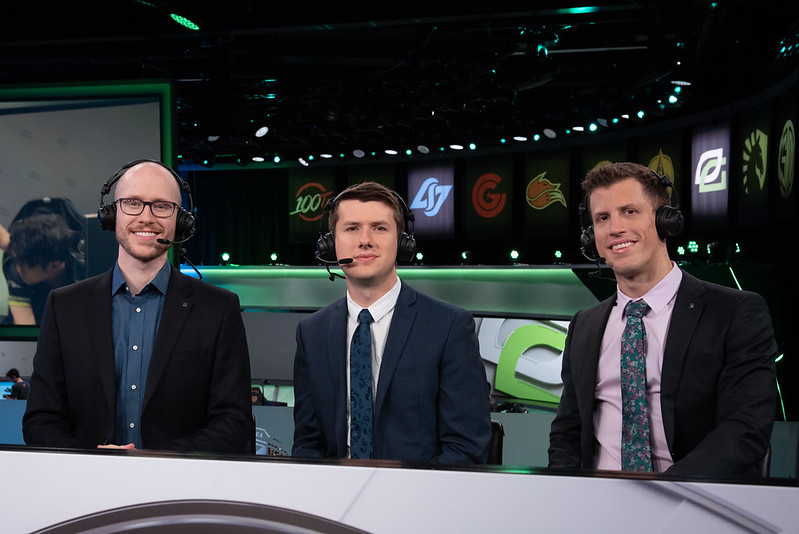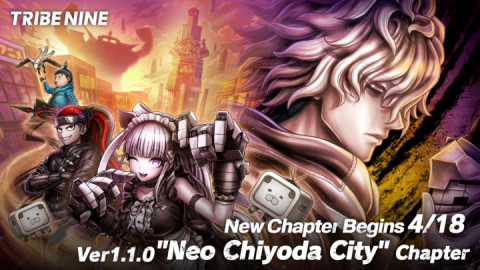Joshua "Jatt" Leesman has been somwhat of a chameleon throughout the past few years of his career. Originally the Jungler for Team Dignitas at the birth of competitive League of Legends, Jatt retired to join the Riot Games developmen team in 2012 before spending nearly seven years as a Color Caster and Analyst for Riot's NA LCS. Before the start of the 2018 season, Jatt announced he would be moving to the Analyst Desk full-time for both the NA LCS as well as international events.
At the beginning of the 2019 season, Jatt decided it was time for another change, retiring from the LoL Esports broadcast entirely to focus on the competitive balance of the game itself. However, after just seven months, Jatt returned to casting in July, re-debuting in Week 7 of the 2019 LCS Summer Split to provide color casting for 100 Thieves victory over Cloud9.
Jatt spoke to Inven Global's Nick Geracie working in competitive balance, returning to casting, and reflect upon the best series he ever casted.

Before your return to casting, the last time you were on broadcast was the 2018 World Championship on the Analyst Desk. What was it like making the adjustment from casting and desk time to being on the Analyst Desk for the entirety of the 2018 season?
When you're doing stuff on the Analyst Desk, you are working more towards the pre-match storytelling, and you also get larger blocks of time to go into whatever you want to talk about because you're not trying to fit your analysis into these windows of time that happen within a game.
In one way, casting is more challenging because you have to be reading the game and seeing where you can get your analysis in, but the Analyst Desk can end up being a lot more freeing and creative because of the larger block of time. Since you're building the show throughout the entire week, you can build it however you want. In that way, the Analyst Desk is more big picture, but also has more creative freedom.
You took a 7 month hiatus from the LCS broadcast, focusing fully on competitive balance from the beginning of 2019 until your return to casting in July. Was returning always part of your plan?
No, I thought when I made the switch to game design that I was going to pursue that as a full career, but I think what ended up happening is I realized how much I missed casting. I realized how much I took for granted in my Analyst Desk and casting work over what I've done the past six years.
I enjoyed game design, and I think if I had never casted or done anything on a League of Legends broadcast, I would have tried to continue on the path of game design. However, once I had done both and I started comparing the two in my own head, I realized that being back on broadcast was the way for me to go forward.
Some of the aspects of being an Analyst and a Color Caster in LoL Esports lend itself to proficiency in competitive balance. Was it simply the heat of the moment in live events that you missed?
I think there are definitely transferrable things between both fields in the sense of how much I know and understand the game on a professional level. 7 years of watching and analyzing pro games helped me when attempting to balance the game and think about changes to champion kits.
Doing that work for 7 months kind of got me back to the more intricate bits of game knowledge that I had back in 2012 or 2013. That was when I first started casting, and I initially made that transfer from the development team at Riot Games. I started as a QA Analyst on the live design team back in 2012.
One thing that draws me towards casting is how much I enjoy storytelling in the moment, especially the part of finding windows in the broadcast to tell the stories you want to tell. You have all of this preparation work, but you're not going to try and force some massive overarching narrative over the entire cast every time. You're just reading what's happening in front of you, and with the knowledge of all of the stories from your preparation, you communicate the best, most interesting info to the audience at that time.
At the same time, you have to do all of that while paying attention to the game and being honest to what happens as it unfolds in front of you. The amount of thinking that goes into each cast, and how much better you can get at casting by doing so time after time, is really fun to continue to do now that I've gotten back into casting.
Do you think there's a potential future for you that involves game design once again, or do you think you've explored that area enough?
Having done the switch back and forth, I don't think I can say 'never' on anything, but for now, I'm really committed to casting for as long as I can.
Was there anything in your experience as a game designer for the past 7 months that you think has added to your casting?
One thing that was reiterated to me while on the design team is how huge the differences between regions on all scales. We are well aware of the differences in the professional scenes in regards to how regions will play different styles or prefer different champions, but that actually filters all the way down to the lowest level of play. The solo queue environments and specific champion popularity differ greatly.
For example, I remember looking at data during competitive design and seeing that Hecarim was banned 80% of the time in Challenger worldwide, but only 5% of the time of Korean Challenger games. On the flipside, Lucian was banned in nearly every Korean Challenger game around that same time, but in only about 2% of Challenger game in North America.
Trying to keep a balanced lens on everything can be difficult when only watching your own region. If you see a strategy become commonplace domestically, but don't notice other regions playing it, you have to ask yourself whether the other regions haven't caught on, or if they have something even better than what your region has innovated.
League of Legends is so massively complex, and even after 10 years, is still so unsolved. That's best shown by the regional differences we see at all levels of play from Silver Rank Solo Queue all the way to professional play.

Since your return to casting for the first time since 2017, is there anything that has changed about how one casts LCS games?
That's hard to say because so many casters have cultivated their own styles. One thing that I did recently was cast the 2019 LCS Summer Quarterfinals. I went and listened to my cast, and then I went back and listened to my cast of the 2016 Worlds Semifinals when SK Telecom T1 played ROX Tigers in Madison Square Garden, and I tried to see what I used to do that I'm no longer doing when casting, and vice-versa.
I thought that was a good inflection point to see what I used to be really good at, and what I need to improve on now. After listening to my SKT vs. ROX cast from Worlds 2016, I can tell I'm still pretty rusty. *laughs*
After watching that series again, I said to myself, 'Oh yeah, I should just do what I was doing in 2016 and go from there.' There was a lot of really good tempo-setting within the game that I used to do, especially in predicting what was going to happen next. I was able to tell the viewer specifically what to look for.
I wasn't just saying 'maybe there will be a fight here' it would be more along the lines of 'Hey, because there are wards here, and because this person has this item, and this person is at this specific level, this is what is going to happen.' Then it would happen, and that would be really rewarding. You're so much more in tune with the game when the stage is set in that way.
I think what had happened in some of my first few casts since coming back this summer was focused on reclaiming the muscle memory of conveying stats efficiently or laying the framework for the right story properly, but I felt that the teamfights were kind of random because I wasn't as used to following the game closely while conveying all of those other things. Because of this, fights weren't properly set up, so I had to re-focus on that in the Semifinals.
I thought the Semifinals casts were a lot stronger than the Quarterfinals casts, and it's one of those things where you have to continue to work upward to improve. Even when you're doing all of the aforementioned things, you still have to make sure you're telling the right stories and choosing the right moments to talk about. You have to encapsulate the whole experience of what watching the game could be, and bring viewers along for that ride.
There's no better way to shake the rust off than comparing your current form to your cast of the greatest series in LoL Esports history, right?
*laughs* Yeah, there's also the factor of having to cast the game in front of you. I'd love to cast an SKT vs. ROX best-of-5 every time; that would be great for my casting and people would have so much fun.
Now that you're back into casting full time, have you set any new goals in your career?
In some years previous, I was completely honed in on making my next cast the best. I would put a bunch of time into marginal improvements, but I think going forward, I will have a bit of a larger focus on trying to do a wider variety of content, or find something that we don't have in the League of Legends ecosystem yet and establish it if beneficial for the community.
I also want to continue to improve and bring new aspect to casting, like how to find the exact right moment to get really casual within the game. Not every moment is going to be a pivotal moment, and in some games, you don't have to follow the game as closely in favor of transitioning to a smooth conversation. If it's a blowout between two mid-tier teams, finding that ebb and flow in casting is always something to strive towards.
Still, in addition to continuing to improve my casting, I also want to move forward by putting focus towards opportunities for new content or potential shows.
Thank you for your time, Jatt. It's great to have you back on the broadcast. Is there anything you'd like to say before we conclude the interview?
It's great to be back casting. It's a constant challenge to try and improve at casting, so coming back at this point is really exciting. Looking towards the 2019 World Championship, there are so many unknowns which will make predicting and analyzing so much more fun. It's pretty cool.
In previous years, you were kind of kidding yourself if you weren't saying SKT or another Korean team in its place was going to win Worlds, but after Invictus Gaming won Worlds 2018 and G2 won MSI 2019, it feels like there's at least three different regions that can win.
Sort by:
Comments :0






